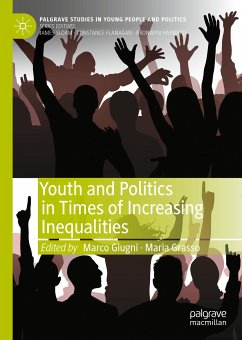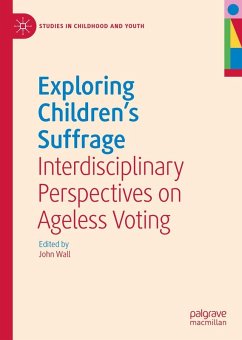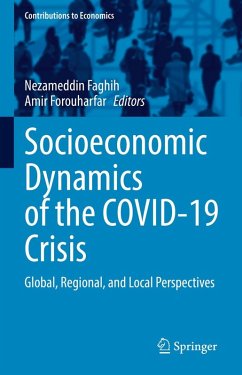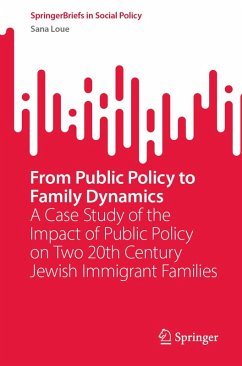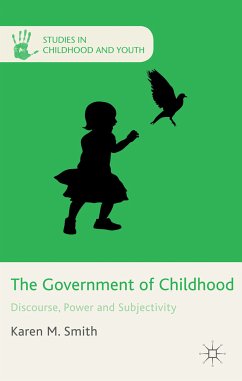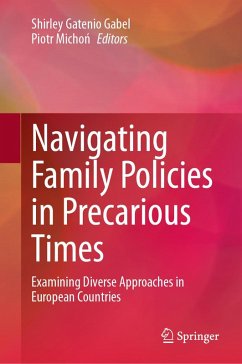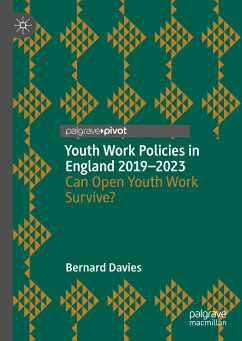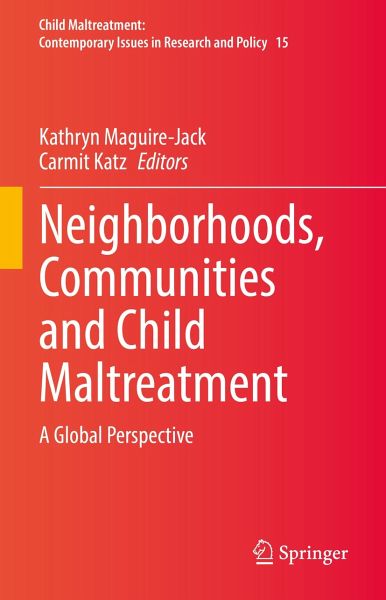
Neighborhoods, Communities and Child Maltreatment (eBook, PDF)
A Global Perspective
Redaktion: Maguire-Jack, Kathryn; Katz, Carmit
Versandkostenfrei!
Sofort per Download lieferbar
112,95 €
inkl. MwSt.
Weitere Ausgaben:

PAYBACK Punkte
56 °P sammeln!
This volume explores methods for studying child maltreatment in the context of neighborhoods and communities, given their importance in the lives of families. It discusses the ways in which neighborhoods have changed over time and how this that has impacted parenting in the modern context. It also highlights the ways in which policies have contributed to persistent poverty and inequality, which indirectly impacts child maltreatment. An important focus of this volume is to examine the multitude of ways in which the neighborhood context affects families, including structural factors like poverty...
This volume explores methods for studying child maltreatment in the context of neighborhoods and communities, given their importance in the lives of families. It discusses the ways in which neighborhoods have changed over time and how this that has impacted parenting in the modern context. It also highlights the ways in which policies have contributed to persistent poverty and inequality, which indirectly impacts child maltreatment. An important focus of this volume is to examine the multitude of ways in which the neighborhood context affects families, including structural factors like poverty, segregation, residential instability, and process factors like social cohesion. The volume takes a critical look at the ways in which culture and context affect maltreatment through a community-based approach, and uses this approach to understand child maltreatment in rural areas. The editors and contributors explore innovative prevention approaches and reflect on the future of this field interms of what remains unknown, how the information should be used to guide policy in the future, and how practitioners can best support parents while being mindful of the importance of context.
Addressing an important topic, this volume is of relevance and interest to a wide readership of scholars and students in the social and behavioral sciences, as well as to practitioners and policy makers working with neighborhoods and communities.
Addressing an important topic, this volume is of relevance and interest to a wide readership of scholars and students in the social and behavioral sciences, as well as to practitioners and policy makers working with neighborhoods and communities.
Dieser Download kann aus rechtlichen Gründen nur mit Rechnungsadresse in A, B, BG, CY, CZ, D, DK, EW, E, FIN, F, GR, HR, H, IRL, I, LT, L, LR, M, NL, PL, P, R, S, SLO, SK ausgeliefert werden.



